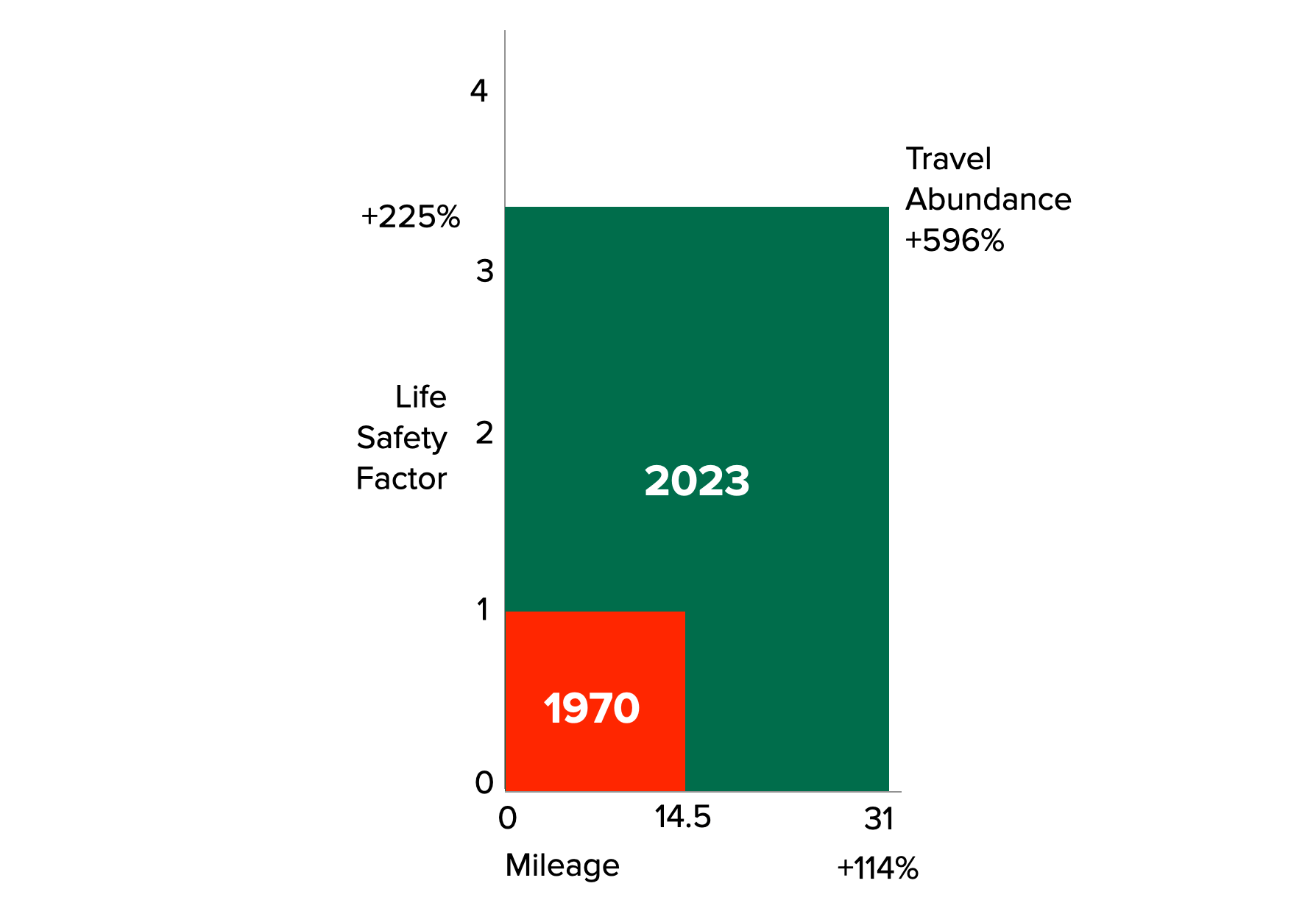Summary: Over the span of five decades, advancements in vehicle safety technology have contributed to substantial improvements in traffic safety. Meanwhile, significant enhancements in fuel efficiency have been achieved. If you define travel abundance as a combination of these two factors, then abundance has increased by 596 percent.
Between 1970 and 2021, the rate of traffic deaths for every 100 million miles driven decreased by 69.3 percent, from 4.88 to 1.50, according to the National Safety Council.
Vehicle miles driven increased 179.8 percent from 1.12 billion miles in 1970 to 3.13 billion in 2021. During this same period, the number of deaths decreased by 14 percent from 54,633 to 46,980.
If traffic safety hadn’t improved since 1970, there would have been 152,842 traffic deaths in 2021 instead of 46,980. That means 105,862 more people are alive thanks to better traffic safety measures. Adjusted for miles driven, for every traffic death in 2021, there were 3.25 in 1970 (4.88 ÷ 1.5 = 3.25).
The opposite of the death rate would be the life safety rate. If we index traffic safety at a value of 1 in 1970, the rate would be 3.25 in 2021. Measured from this perspective, 2021 was 225 percent safer than 1970. Vehicle safety has been increasing at a compound annual rate of 2.34 percent, doubling every 30 years.
Cars and drivers are both getting safer by getting smarter. Cars today have three-point seat belts, air bags, stability control, backup cameras, blind spot detection, anti-lock brakes, radial belted tires, headrests, tire pressure monitoring, automatic emergency braking, lane departure warning, adaptive headlights, adaptive cruise control, and anchors for child seats.
We also get much better mileage. The full-size Ford Galaxie took the number-one spot in sales for 1970. It got 13 to 16 miles per gallon. Today’s bestseller is the Honda CRV, which gets 28 to 34 miles per gallon. Gas mileage has increased by 114 percent while safety has improved by 225 percent. If you define travel abundance as a combination of these two factors, then abundance has increased by 596 percent.
This article was published at Gale Winds on 4/24/2024.




